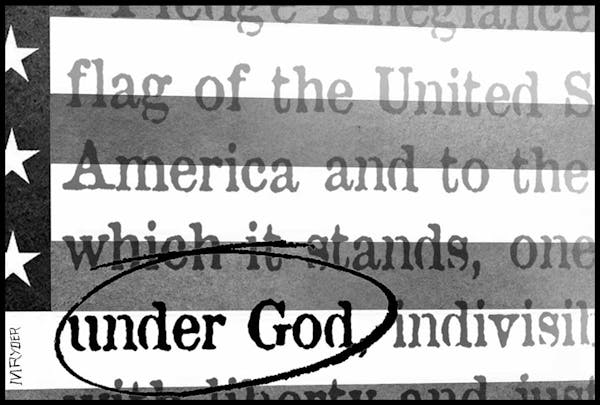Recently, my wife and I announced to our church that in our personal time we would be assisting the presidential candidacy of U.S. Rep. Michele Bachmann.
This announcement was not a pulpit-based endorsement of Bachmann's campaign. Rather, it was an honest and courteous disclosure to members of our church before they would otherwise have heard this news in the media.
Unfortunately, as we learned after Bachmann came and spoke at our church some years ago, certain outside groups continue to question our tax-exempt status with the IRS. They would like to see our congregation and its leadership silenced on matters of politics.
But just what is the role of faith in U.S. politics? Do current government regulations silence people of faith on matters of significant concern for our communities and nation?
The founders of this great country never intended for one's faith to be a preclusion from civic and political engagement. Quite the opposite: Faith has been a cornerstone of this country's claim to legitimacy since its founding.
We must not forget that the universal human rights discussed in our Declaration of Independence are "endowed by our Creator."
Regardless of how one feels about the constitutionality of the current restrictions placed upon religious leaders in the political context, our faith teaches us "to render unto Caesar that which is Caesar's and to God, that which is God's" (Mark 12:17).
Like other people of faith, Christians are commanded to obey the law of the land, so long as that law does not compel immorality.
Both because of our faith and belief in the responsibilities associated with citizenship, my wife and I are fully committed to obeying the current law and separating our private political activities from our official work on behalf of the church.
In 2006, our church adopted policies based on the IRS rules and regulations, and those policies are being rigorously followed.
We will not be participating in politics as representatives of our church, nor will we use any church property or assets without reimbursement for our private political activities. We will avoid not just impropriety, but even the appearance of it.
Nevertheless, we will not cease from encouraging congregants to be engaged in the political process, to discuss the public affairs of our country and to come to their own decisions regarding the selection of candidates for public office.
Our rights are endowed by God, protected by those who serve our country, and enshrined in our Constitution. There cannot be a distinction between what political activity a member of the clergy is allowed in his or her free time, and what any other citizen is permitted.
Regardless of what faith we hold or how deeply it is held, all citizens are equal under the law.
Our most inspiring and courageous citizens, such as the Rev. Martin Luther King Jr., were guided and informed by their faith. Throughout our history, countless presidents and elected representatives have embraced their faith.
They have spoken openly about it, and it was their source of strength in trying times. And so it will continue to be.
Within the bounds of the law, the faith communities will continue to be a part of the American political discourse, and so will their leaders.
* * *
Mac Hammond is senior pastor of Living Word Christian Center in Brooklyn Park.

Thoughts from the Star Tribune's new community engagement director
Cut down on electronic waste in Minnesota
In Minnesota, statistical gloom amid the hope of a progressive-led boom


